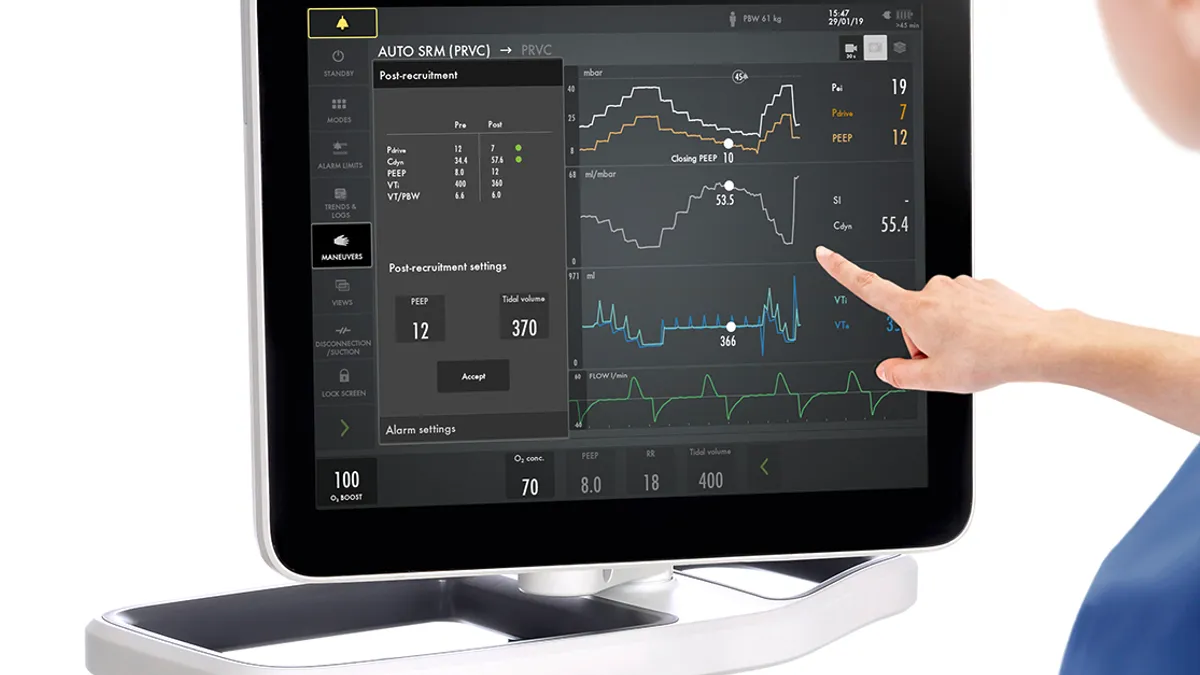Dive Brief:
- Getinge’s recall of 11,000 ventilators from the U.S. has been categorized as a Class I event by the Food and Drug Administration.
- Getinge sent an urgent medical device correction notice about the devices last month after learning of a problem that can cause loss of ventilation. Patient outcomes that could result from the problem include circulatory failure.
- The company estimated the likelihood of a single device experiencing the error to be less than 0.002%.
Dive Insight:
The recall covers four devices in Getinge’s portfolio, including the Servo-u mechanical ventilator and the Servo-n product designed for use with neonates. All of the devices suffer from an issue related to their alarms.
Getinge began the recall because the devices may generate a combination of alarms that can result in a loss of communication, the triggering of technical alarms and loss of ventilation. If a ventilator stops working, the patient may breathe too slowly or shallowly and therefore get too little oxygen into their blood, which could result in brain injuries and circulatory failure.
In response to the fault, which affects 11,089 ventilators in the U.S. and 37,000 products worldwide, Getinge is advising users to adhere to existing precautions that would minimize the impact of the loss of ventilation and has updated its software platform.
Getinge sent a field safety notice about alarm-related problems with the same devices in Europe in June. In that notice, the company described three cases in which ventilation stopped when people were being treated with Servo-n, the product designed for use with neonates. Getinge estimated the likelihood of a single device experiencing the error to be less than 0.002%.
The recall comes amid Philips’ attempt to repair or replace 5.5 million sleep apnea and ventilator devices over concerns about the risks posed by its sound abatement foam. A recent lawsuit alleged Philips knew of the risks for years before it began the recall.










